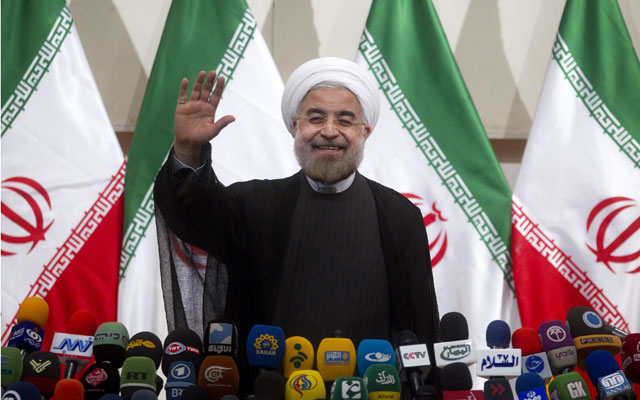Iran’s New U.N. Ambassador Exploited American Hostages
James Phillips /
While posing as a friendly and pragmatic reformer, Iranian President Hassan Rouhani has stuck a finger in the eye of Washington by appointing a diplomat who participated in the 1979 seizure of the U.S. Embassy in Tehran as Iran’s next representative to the United Nations.
Hamid Aboutalebi was a member of the Muslim Students Following the Imam’s Line, the group that seized the U.S. Embassy on November 4, 1979 and held American diplomats hostage for 444 days. This hostage crisis advanced Ayatollah Khomeini’s Islamist extremist agenda and helped his followers consolidate control over the embryonic Islamic Republic.
Aboutalebi, a veteran diplomat who most recently served as President Rouhani’s Deputy Chief of Staff for Political Affairs, has claimed that he only served as a translator for the hostage-takers and wasn’t involved in seizing the embassy.
But even if he was not involved in the initial terrorist kidnappings, he willingly aided and abetted the other young revolutionaries that perpetrated those crimes. His appointment to such a high profile diplomatic post is a slap in the face of the Obama Administration, which is bending over backwards in an effort to negotiate a nuclear deal with Iran.
The appointment raises even more doubts about the Rouhani regime’s qualifications as a trustworthy negotiating partner. How can a regime that continues to celebrate the illegal seizure of an embassy—a terrorist act that violated Iran’s diplomatic obligations—be trusted in a nuclear deal?
Aboutalebi’s selection also unmasks Rouhani’s foreign policy as a public relations exercise designed to help Iran wriggle out of international sanctions. Although Rouhani is a master of “smile diplomacy,” his regime continues many of his predecessors’ worst policies.
Since Rouhani took office last August, there has been a surge of executions in Iran with at least 587 people executed in the past eight months.
Last month the United Nations issued a report that found no improvement in Iran’s human rights abuses and criticized Tehran for amputations, flogging, increased application of the death penalty, arbitrary detentions, and unfair trials.
Iran also remains the world’s foremost state sponsor of terrorism. Last month it was caught once again shipping arms to terrorist groups when Israel intercepted a shipment of Iranian and Syrian arms meant for Palestinian terrorists in Gaza.
Moreover, Iran still holds American hostages, only it has become much more cunning about disguising that fact. The regime has resorted to trumped up charges to jail Saeed Abedini, an Iranian-American pastor and Amir Hekmati, an Iranian-American former Marine.
Robert Levinson, a retired FBI agent who disappeared inside Iran in 2007, is now the longest held hostage in American history. Iran denies that it was involved in his kidnapping despite the fact that one of the last people to see Levinson was David Belfield, an American convert to Islam who previously had worked as an assassin for Iran’s revolutionary regime. Belfield fled to Iran after he assassinated an exiled Iranian opposition leader, Ali Akbar Tabatabai, in 1980 in Bethesda, Maryland.
And in an amazing coincidence, Belfield is known to be close to Rouhani’s Vice President, Massoumeh Ebtekar, who served as a spokesman for the “students” who seized the U.S. embassy in 1979.
Sadly, the Obama Administration’s engagement policy has done little to help Americans being held hostage in Iran, let alone the millions of Iranians who are being held hostage by their nation’s predatory regime.
RELATED POSTS:
Iran: More Sanctions Pressure Needed to Salvage an Acceptable Nuclear Deal

